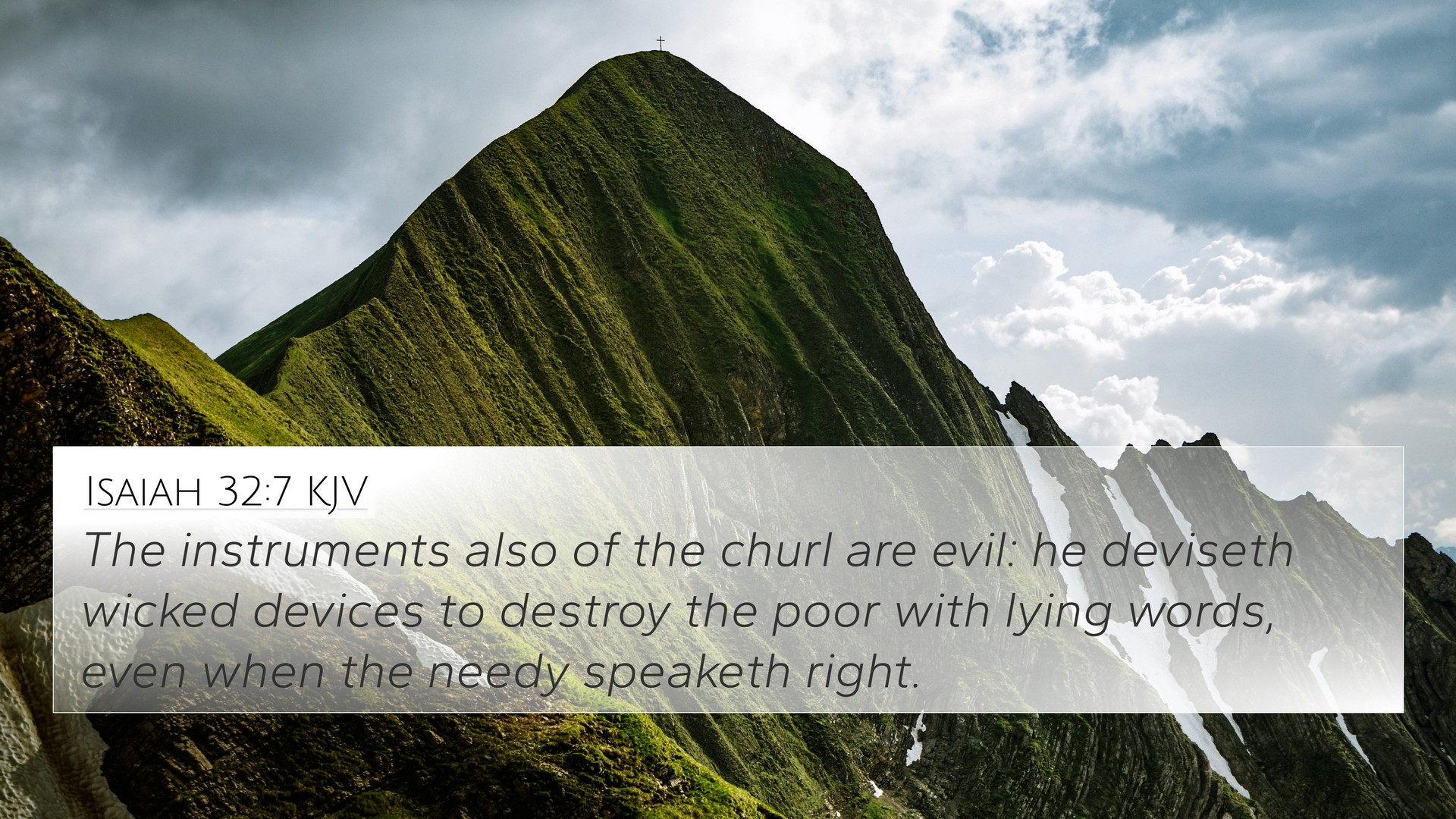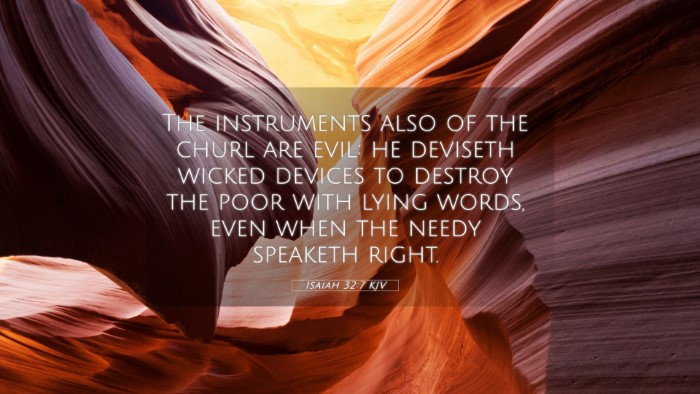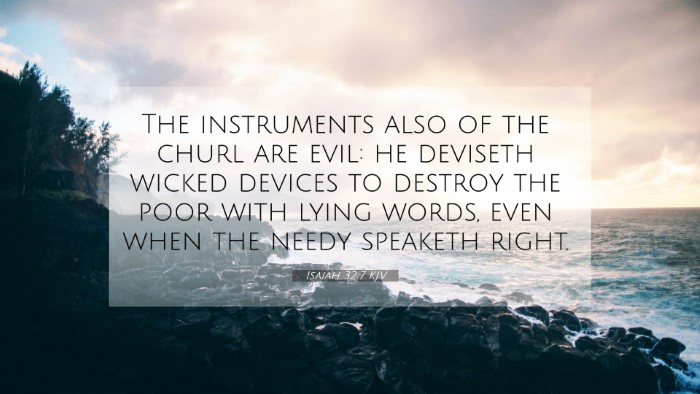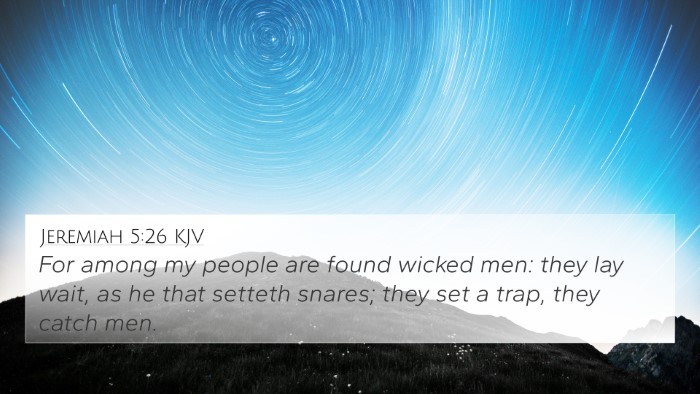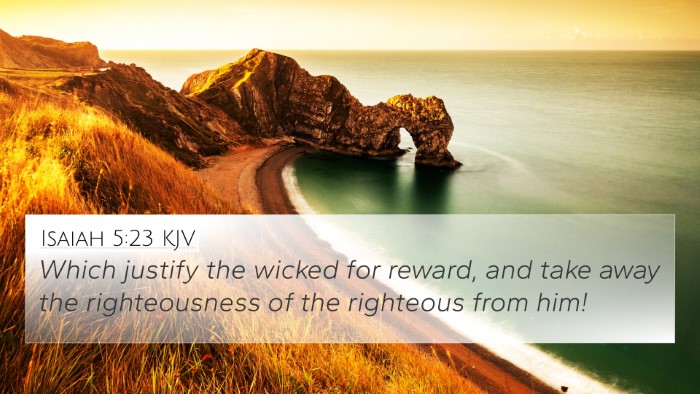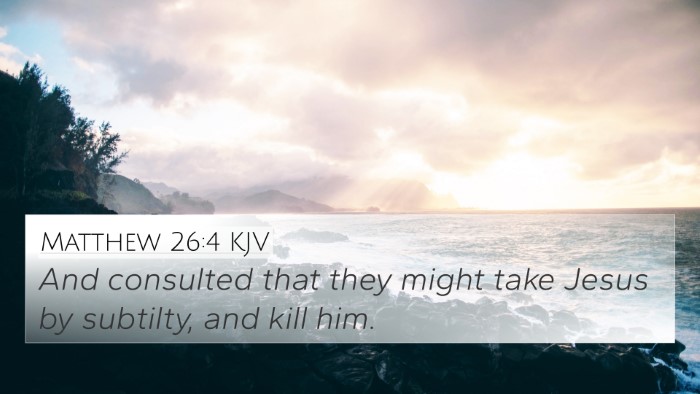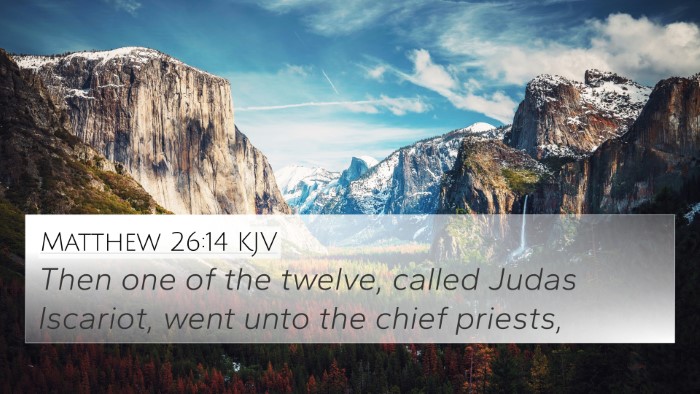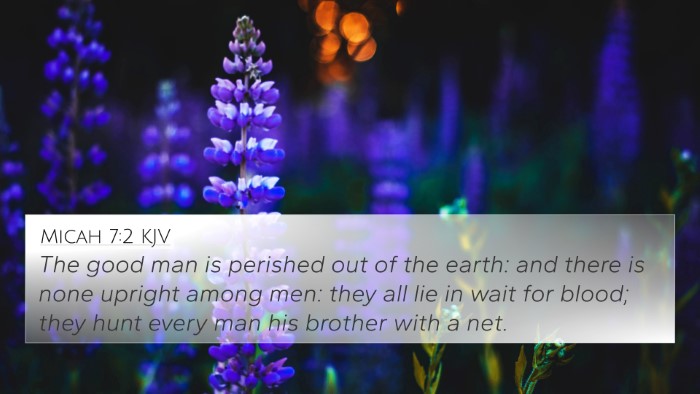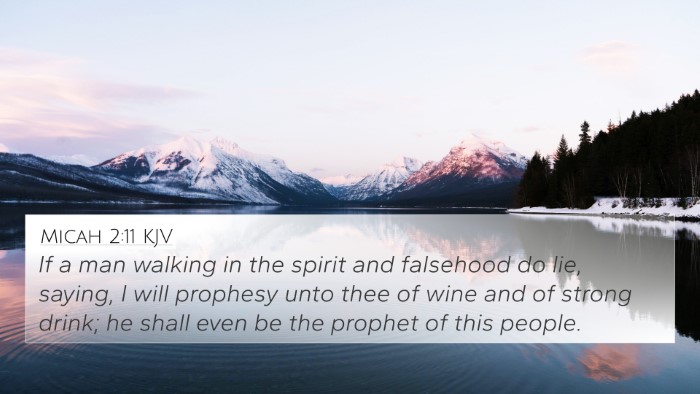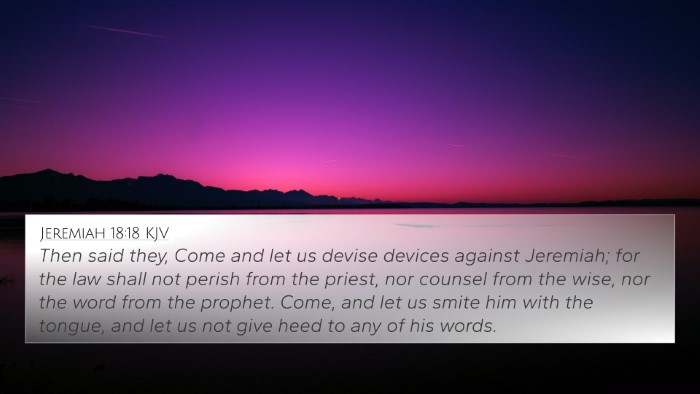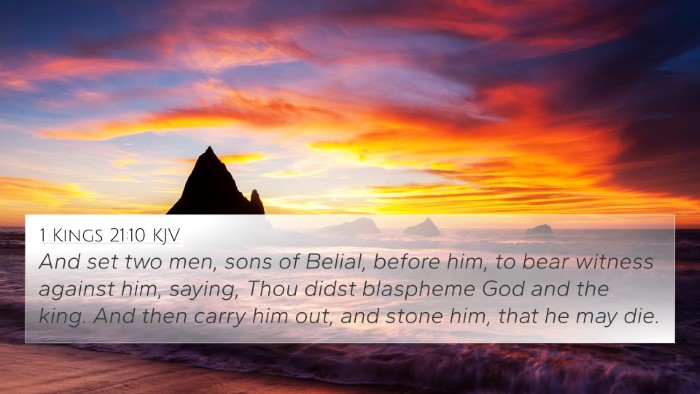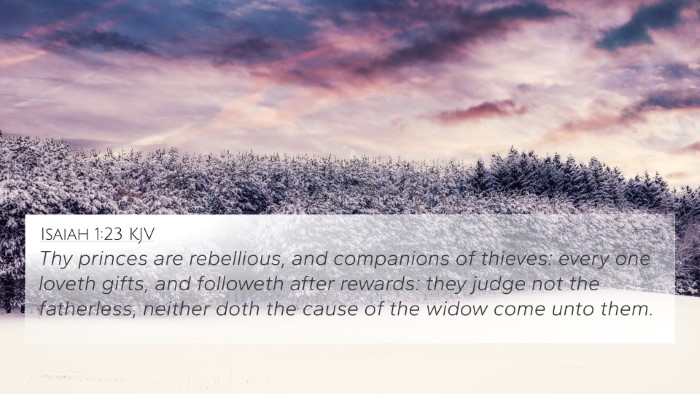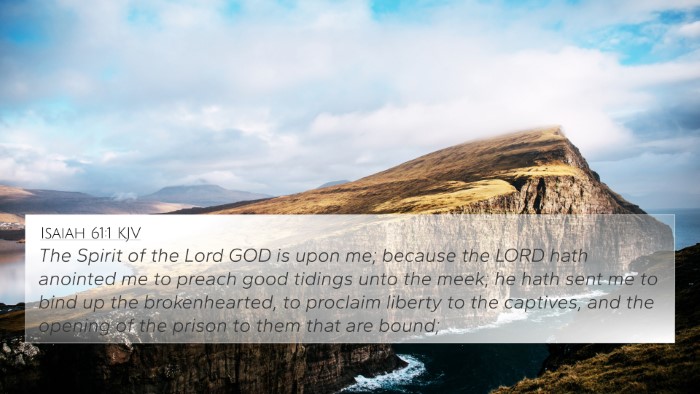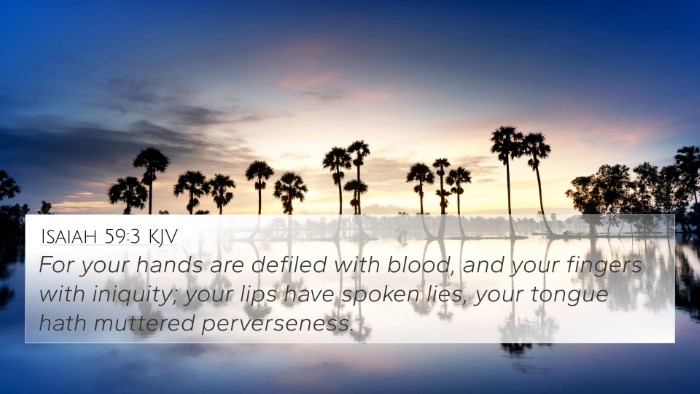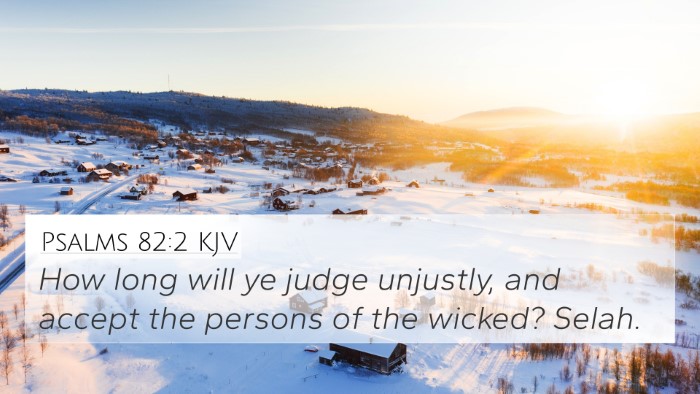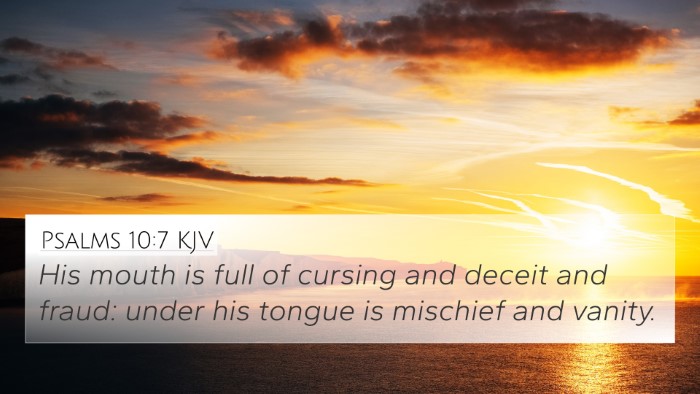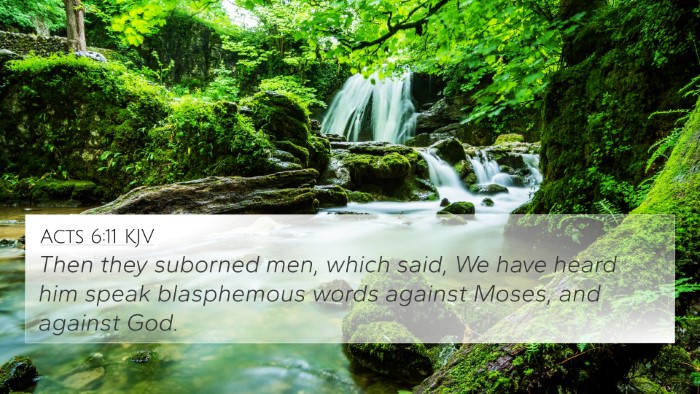Understanding Isaiah 32:7
Isaiah 32:7 states: "The instruments also of the churl are evil: he deviseth wicked devices to destroy the poor with lying words, even when the needy speaketh right." This verse highlights the corrupt nature of deceitful individuals who exploit the vulnerable for their own gain.
Meaning and Context
In this context, Isaiah conveys a strong message against the oppression of the poor and the manipulation by the powerful. The verse speaks to the moral decay present in society, where those in positions of power design schemes to take advantage of the needy, often employing lies and cunning tactics.
Insights from Public Domain Commentaries
-
Matthew Henry:
Henry emphasizes that the "instruments of the churl" refer to the tools used by unscrupulous individuals to perpetrate their schemes. Such people are characterized by malevolence and a willingness to harm others, particularly the marginalized. He also connects this to the broader context of societal injustices and God's impending judgment on those who exploit the downtrodden.
-
Albert Barnes:
Barnes points out that "lying words" indicate the deceptive rhetoric used by the wealthy and powerful to cloak their true intentions. He highlights the contrast between the vile acts of the churl and the genuine cries for justice from the needy, underscoring a society divided by inequality.
-
Adam Clarke:
Clarke interprets this verse by drawing attention to the notion of justice. He notes that the poor are often marginalized, yet their pleas for truth and justice are valid. Clarke suggests that the devising of wicked devices shows a deliberate intent to inflict harm and that such actions cannot remain unpunished before God.
Related Bible Verse Cross-References
To further explore the themes in Isaiah 32:7, here are some cross-referenced Bible verses that relate to this topic:
- Proverbs 14:31: "He that oppresseth the poor reproacheth his Maker: but he that honoreth him hath mercy on the poor."
- Psalm 37:14: "The wicked have drawn out the sword, and have bent their bow, to cast down the poor and needy, and to slay such as be of upright conversation."
- Micah 2:2: "And they covet fields, and take them by violence; and houses, and take them away: so they oppress a man and his house, even a man and his heritage."
- Luke 6:24: "But woe unto you that are rich! for ye have received your consolation."
- James 5:1: "Go to now, ye rich men, weep and howl for your miseries that shall come upon you."
- Zechariah 7:10: "And oppress not the widow, nor the fatherless, the stranger, nor the poor; and let none of you imagine evil against his brother in your heart."
- Jeremiah 22:13: "Woe unto him that buildeth his house by unrighteousness, and his chambers by wrong; that useth his neighbour's service without wages, and giveth him not for his work."
Thematic Bible Verse Connections
This verse not only sheds light on the oppression of the poor but also prompts a deeper examination of how interconnected our scriptures are regarding justice, righteousness, and the consequences of sin. Understanding these connections aids in a more holistic view of biblical teachings on morality and social ethics.
Cross-Referencing Bible Study
For those exploring how to use Bible cross-references effectively, consider the following:
- Utilize a Bible concordance to identify words and themes.
- Engage in cross-reference Bible study methods such as thematic analysis or verse comparison.
- Explore comprehensive Bible cross-reference materials to understand broader implications.
- Acknowledge the inter-Biblical dialogue by examining how the Old and New Testament relate to each other.
- Utilize tools for identifying connections between verses that offer insights on similar themes.
Conclusion
Isaiah 32:7 reveals profound truths about social injustice and the distortion of truth by those in power. By engaging with related scripture and utilizing cross-referencing tools, one can develop a deeper understanding of the interconnectedness of biblical themes. This verse serves as a reminder of the importance of standing against oppression and championing justice, resonating with the biblical call to care for the needy and uphold righteousness.
